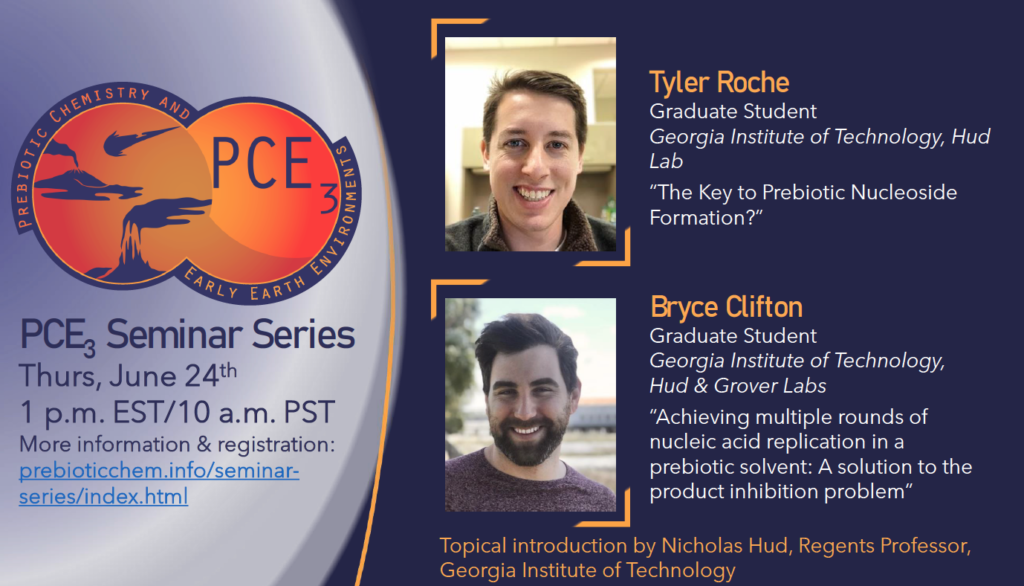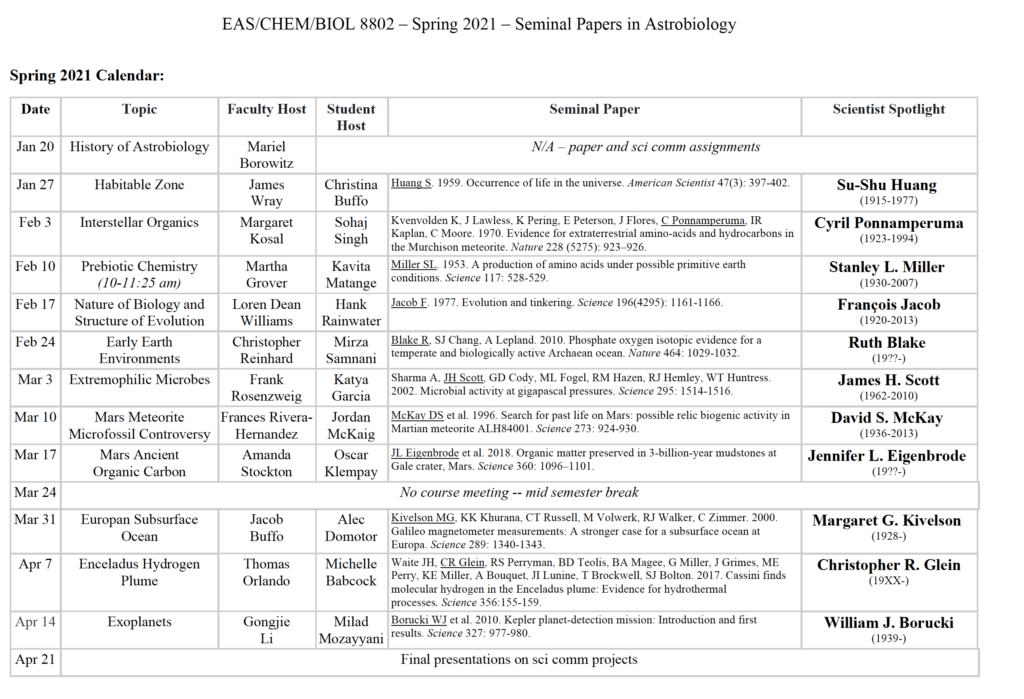
Congratulations to our 2023-2024 Astrobiology Fellows: Colin Burnett, Jose Luis Ramirez Colon, Sarah Kingsley, Mohamed Nassif, Chad Pozarycki, and Vahab Rajei!

Congratulations to our 2023-2024 Astrobiology Fellows: Colin Burnett, Jose Luis Ramirez Colon, Sarah Kingsley, Mohamed Nassif, Chad Pozarycki, and Vahab Rajei!
Congratulations to our 2022-2023 Astrobiology Fellows: Claire Elbon, Tatiana Gibson, Emmy Hughes, and Sharissa Thompson!

Please join us for another session of the PCE3 seminar series on June 24 at 1:00-2:30 pm (EST). This session we are excited to hear from Tyler Roche and Bryce Clifton, both graduate students at the Georgia Institute of Technology. We will also have a short topical introduction from Dr. Nicholas Hud, Professor at the Georgia Institute of Technology. We hope you can join us for another exciting session!
Tyler Roche will talk about “The Key to Prebiotic Nucleoside Formation?”
Bryce Clifton will talk about “Achieving multiple rounds of nucleic acid replication in a prebiotic solvent: A solution to the product inhibition problem”
Please use this link to register. In the event the zoom meeting reaches capacity the meeting will be live streamed to the PCE3 youtube channel.

Spring 2021 Seminal Papers in Astrobiology schedule is now finalized! Guests, we welcome you to sit in on the presentations and discussions. Because this is a course with participation points given for students taking it for a grade, guests are asked to please reserve questions/comments until the end of the discussion period. Course meetings are Wednesdays 9:30-11:25 am Eastern on Blue Jeans: https://gatech.bluejeans.com/891027890

Please join us in congratulating Reilly Brennan, 2020 recipient of a GT Astrobiology Graduate Certificate and GT Chemistry MS ’20 graduate!
Read Reilly’s sci comm project here.

ExplOrigins & Astrobiology Primer Community Review
Speaker: Frank Rosenzweig
Affiliation: Georgia Institute of Technology, Department of Biological Sciences

Date: Friday, May 22, 2020 – 10:00am
Location: BlueJeans
Host: ExplOrigins Group
Title: Microbial adaptation to chronic nutrient limitation
ExplOrigins & Astrobiology Primer Community Review
Affiliation: Georgia Institute of Technology, Department of Biological Sciences

Date: Friday, May 15, 2020 – 10:00am
Location: BlueJeans
Host: ExplOrigins Group
Informal talk: Multicellularity in green algae